
My journey of Kubernetes
through client-go and k8s-conformance test writing
Caleb Woodbine <calebwoodbine.public@gmail.com>


Introduction
- test writing as an introduction to Kubernetes
- how I initially got started contributing to Kubernetes
- why you might like to contribute to Kubernetes
About me


based in Wellington, New Zealand. Software and infrastructure engineer. Cloud & Open Source enthusiast.
Background and some past projects
- Safe Surfer
- consumer routers
- production infrastructure
- ii.nz
- Kubernetes conformance
- sig-k8s-infra
- personal
- FlatTrack (software for humans living together)
Learning by doing
into test writing with Kubernetes and Go.
Exploring Kubernetes resources and API
...
- pkg/
- cmd/
- test/
- e2e/
- apps/
- scheduling/
...
- conformance/
- testdata/
- conformance.yaml
...
...
...
reading and building mental-models
Reading existing tests
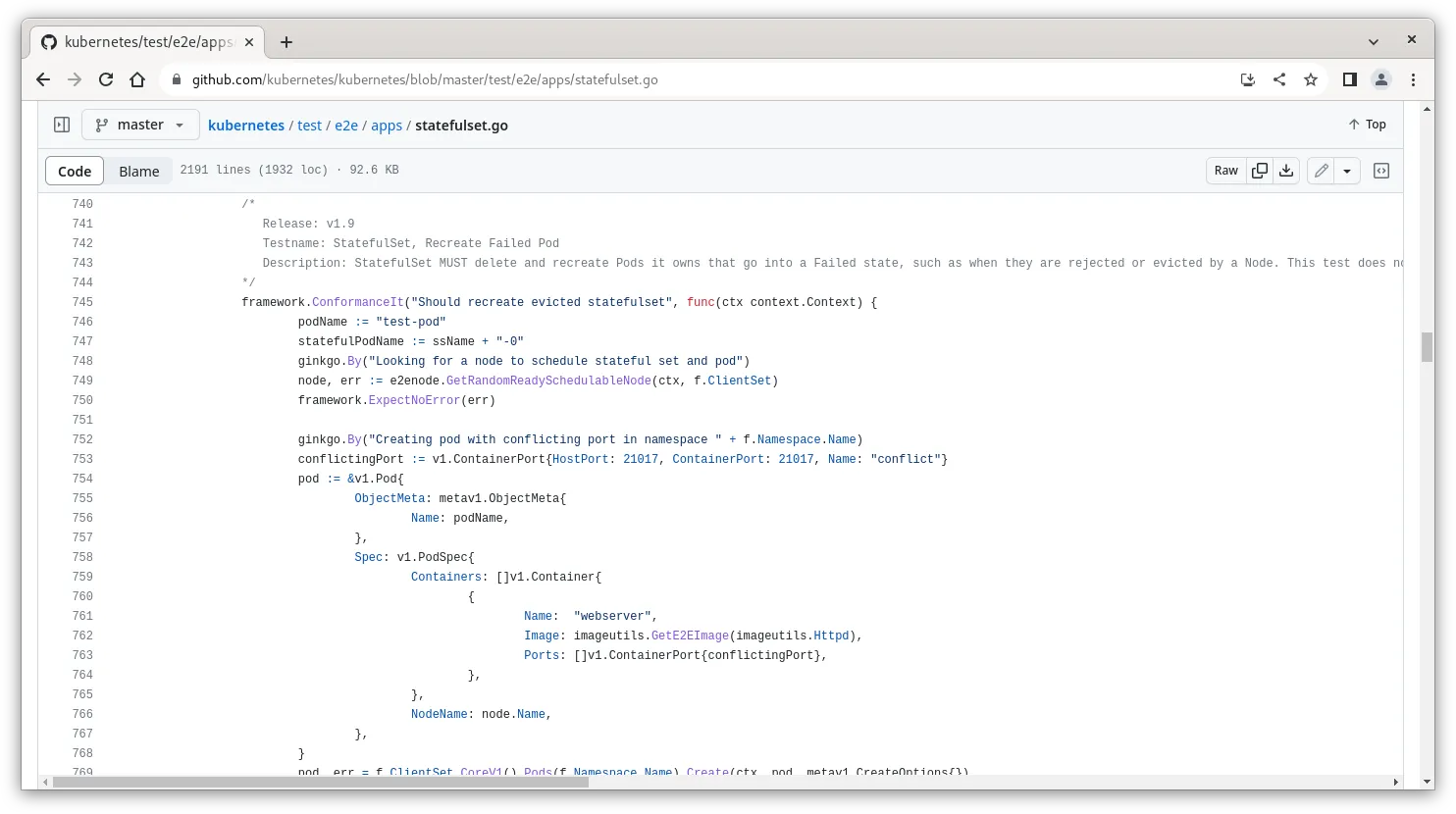
Resource model in client-go
pods, err := clientset.CoreV1().Pods("").List(context.TODO(), metav1.ListOptions{})
matches up with /api/v1/pods
deployments, err := clientset.AppsV1().Deployments("").List(context.TODO(), metav1.ListOptions{})
matches up with /apis/apps/v1/deployments
RESOURCE, err := clientset.APIGROUP().API("").ACTION(context.TODO(), ...)
matches up with /apis/APIGROUP/VERSION/API
kubectl goodness
powerful to explore when working inside a cluster
kubectl get --raw /
{
"paths": [
"/.well-known/openid-configuration",
"/api",
"/api/v1",
"/apis",
"/apis/",
"/apis/admissionregistration.k8s.io",
"/apis/admissionregistration.k8s.io/v1",
"/apis/apiextensions.k8s.io",
"/apis/apiextensions.k8s.io/v1",
"/apis/apiregistration.k8s.io",
"/apis/apiregistration.k8s.io/v1",
"/apis/apps",
"/apis/apps/v1",
"/apis/authentication.k8s.io",
"/apis/authentication.k8s.io/v1",
"/apis/authorization.k8s.io",
"/apis/authorization.k8s.io/v1",
"/apis/autoscaling",
it’s all JSON!
kubectl goodness
kubectl explain pod
KIND: Pod
VERSION: v1
DESCRIPTION:
Pod is a collection of containers that can run on a host. This resource is
created by clients and scheduled onto hosts.
FIELDS:
apiVersion <string>
APIVersion defines the versioned schema of this representation of an
object. Servers should convert recognized schemas to the latest internal
value, and may reject unrecognized values. More info:
https://git.k8s.io/community/contributors/devel/sig-architecture/api-conventions.md#resources
kind <string>
Kind is a string value representing the REST resource this object
represents. Servers may infer this from the endpoint the client submits
requests to. Cannot be updated. In CamelCase. More info:
https://git.k8s.io/community/contributors/devel/sig-architecture/api-conventions.md#types-kinds
Kubernetes conformance (cncf.io/ck)
keeping Kubernetes consistent for core built-in APIs. a strategic initiative in the CNCF in conjunction with ii.nz
the certification process requires each distribution to pass a set of tests and provide evidence and instructions for reproducing the data.
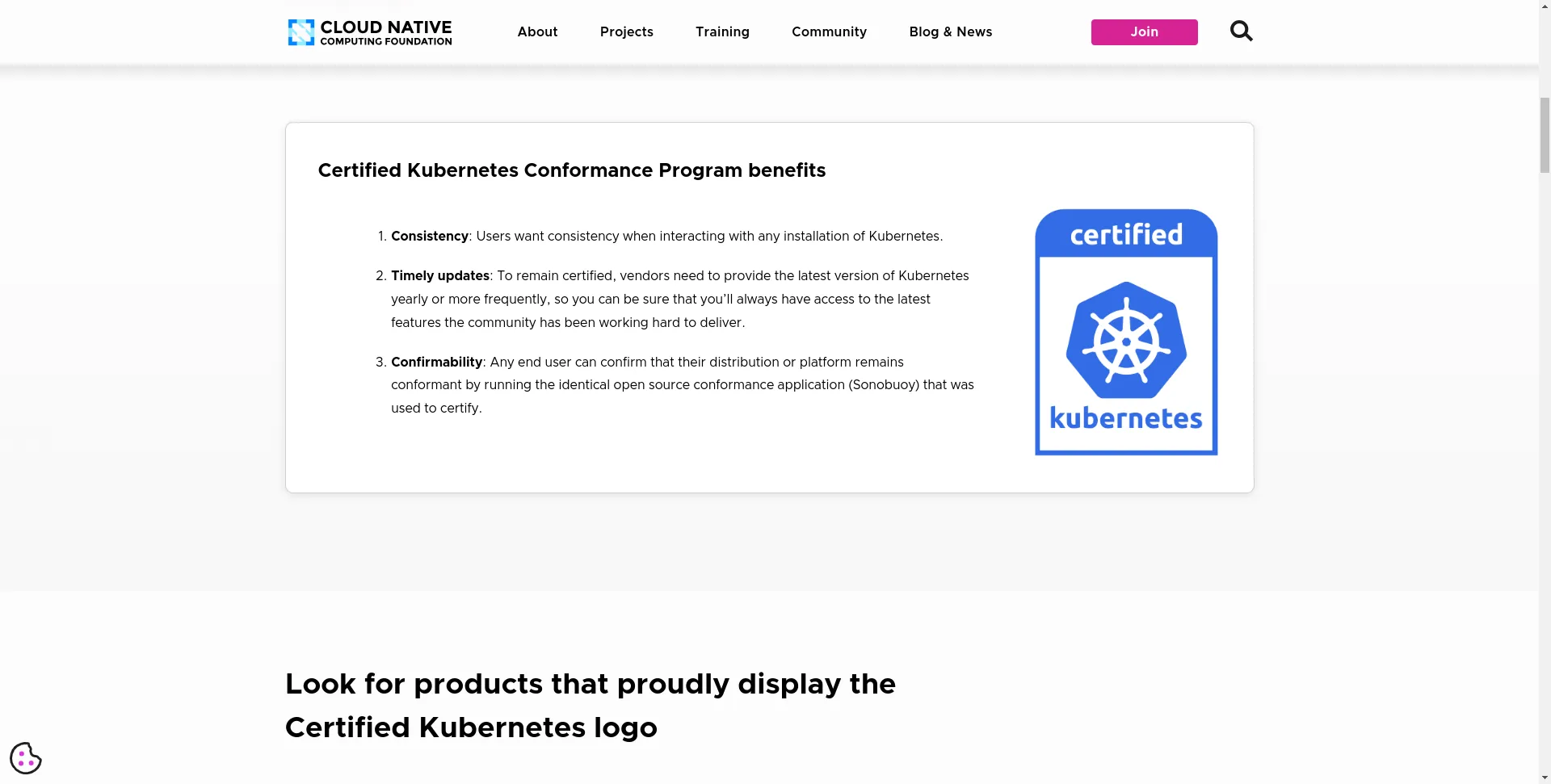
vendors
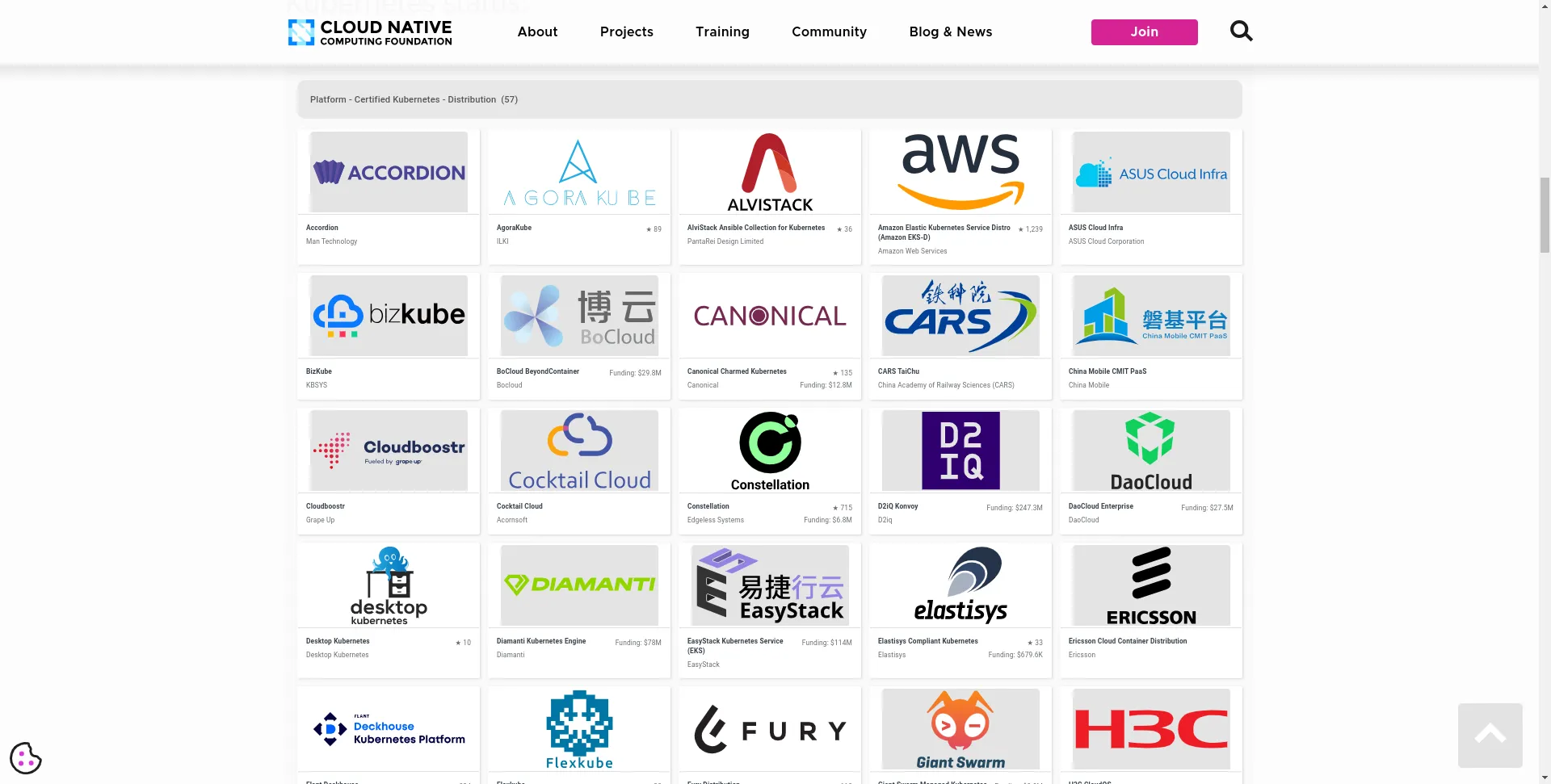
Test writing
Environment set up: APISnoop
using some plumbing, write each Kubernetes api-server request to a database
apiVersion: audit.k8s.io/v1
kind: Policy
rules:
- level: RequestResponse
kubectl create namespace apisnoop
helm install -n apisnoop snoopdb charts/snoopdb
helm install -n apisnoop auditlogger charts/auditlogger

Endpoint discovery and mock tickets
mock/exercise an API and prove change in API surface coverage
determine untested endpoints
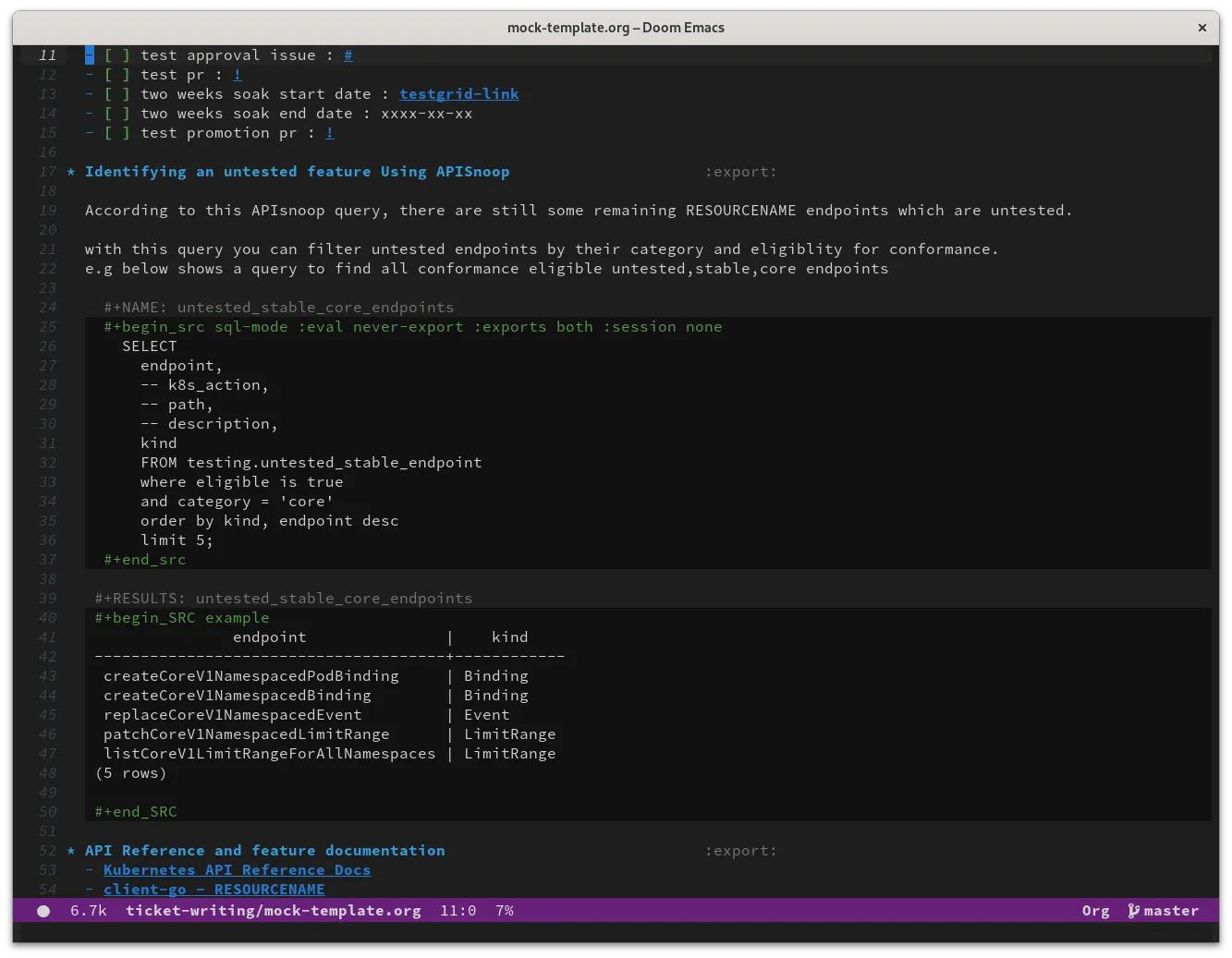
cs.k8s.io
find things in the code base
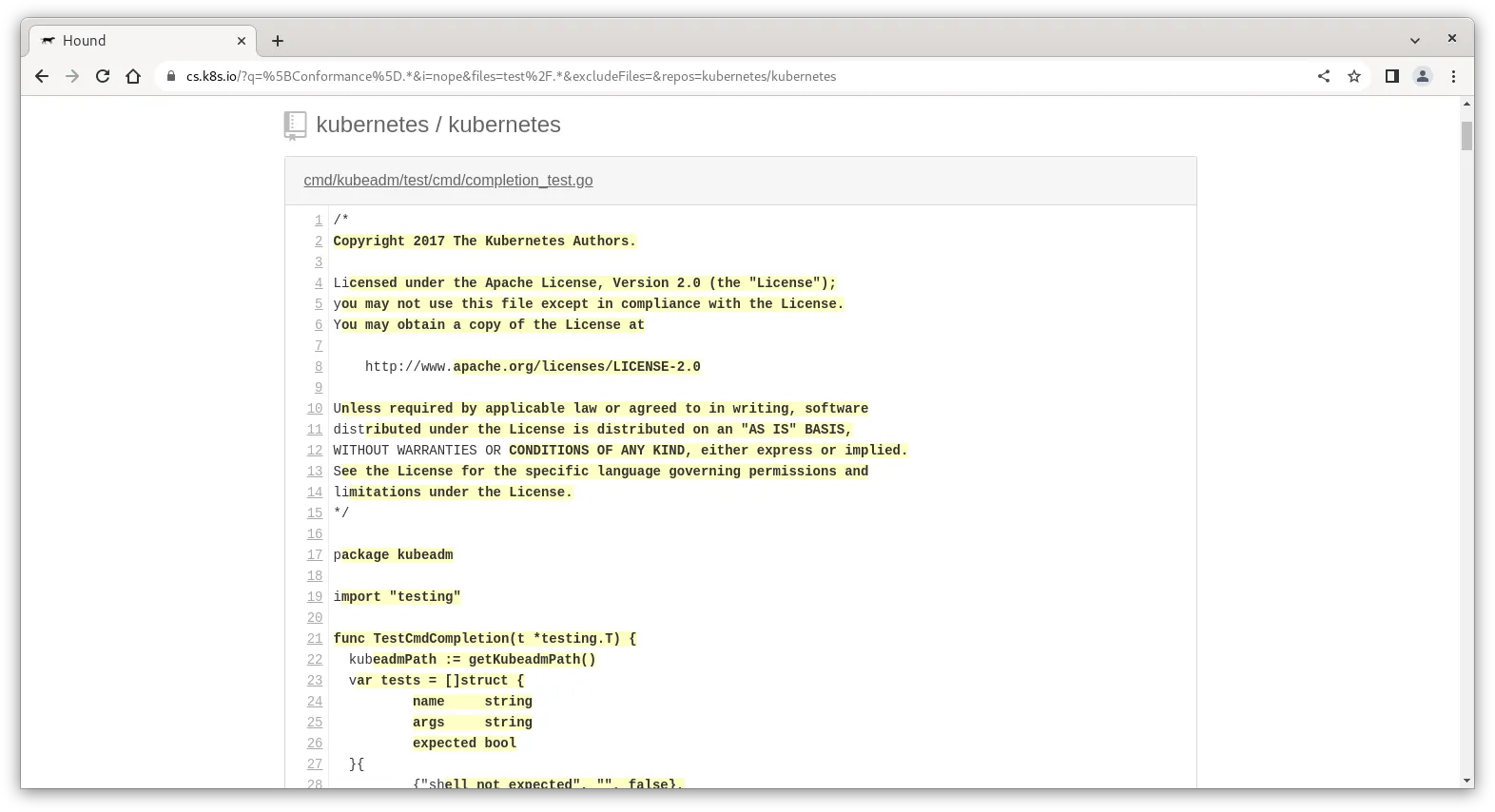
write a small sample to evaluate and see results
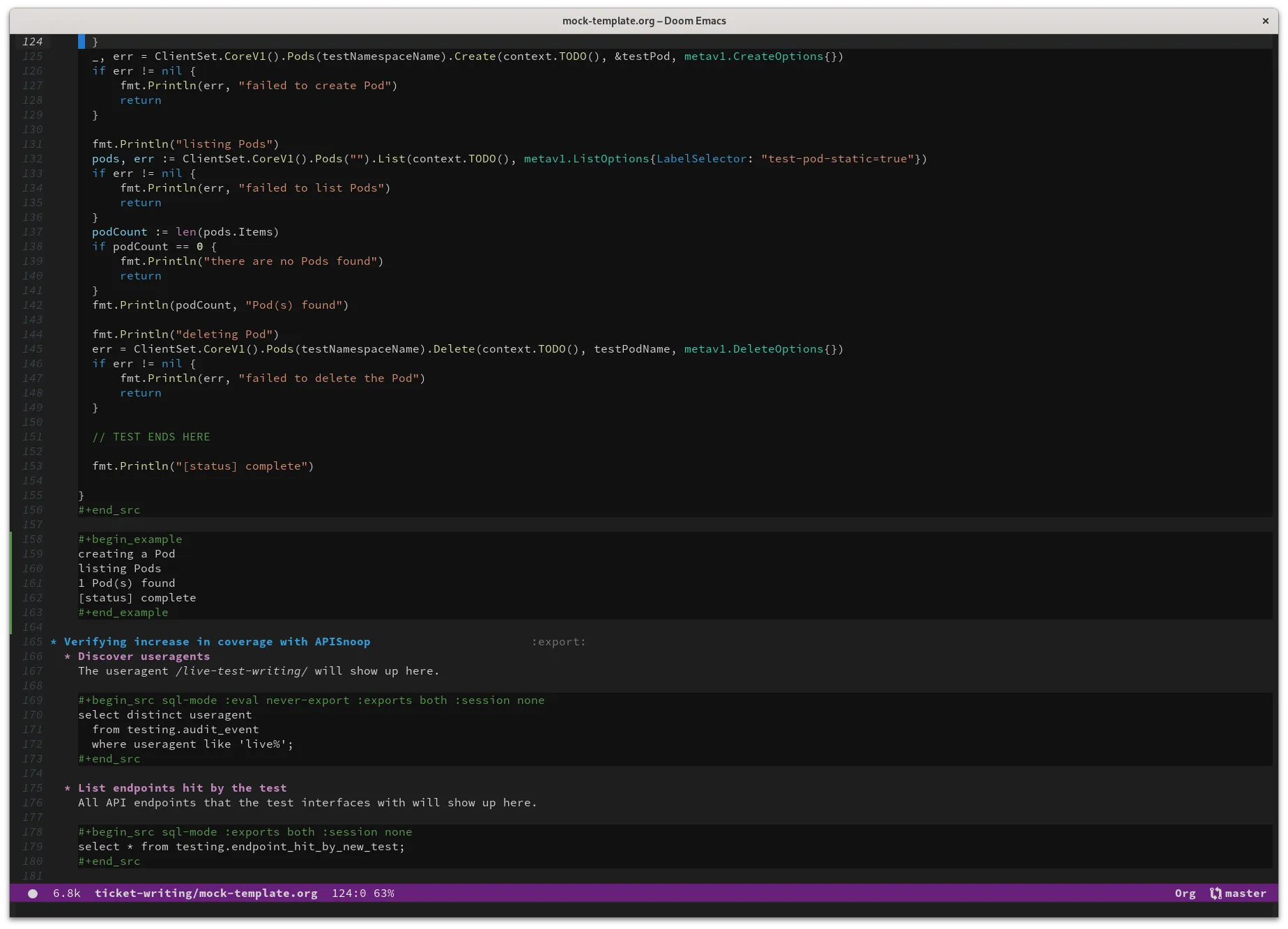
prove the change in coverage
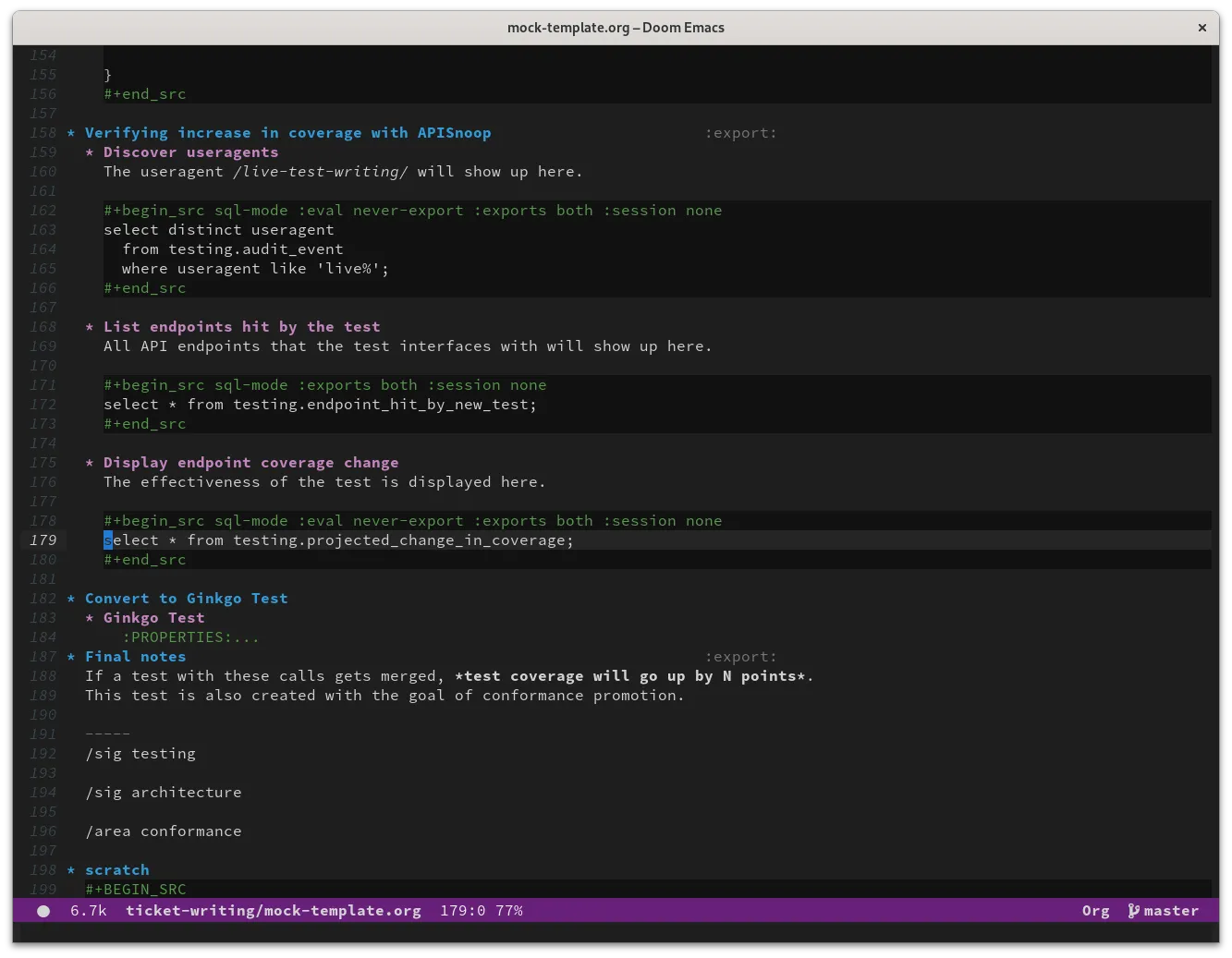
new ticket in k/k
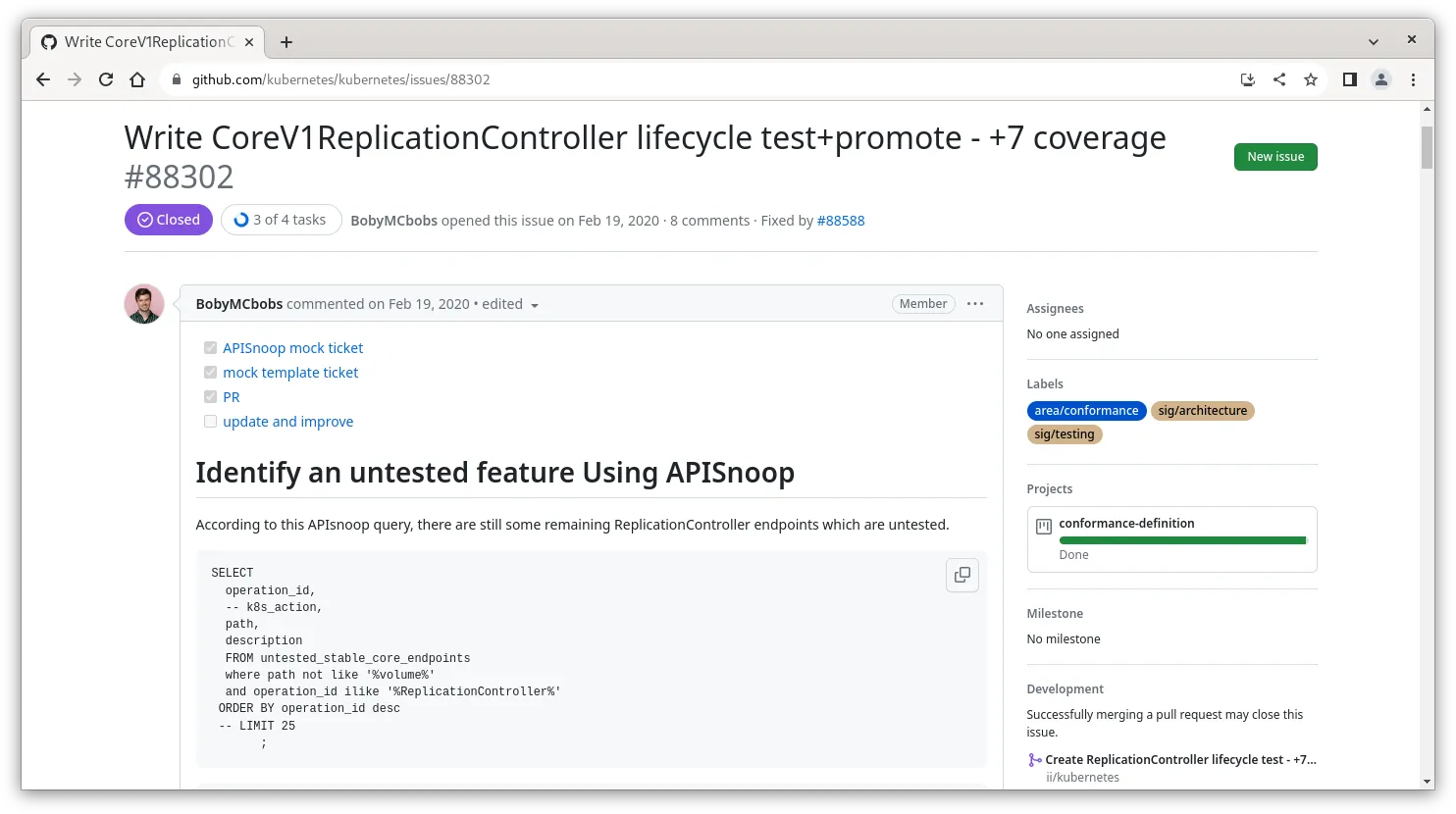
example: https://issues.k8s.io/88302
Test writing and the Ginkgo e2e test framework
after the endpoint and basic test are approved
...
ginkgo.It("resource should do the thing the resource does", func(ctx context.Context) {
list, err := clientset.SomeResource(f.Namespace.Name).List(ctx, resourcev1.ListOptions{})
gomega.Expect(err).To(BeNil(), "failure to list resource")
gomega.Expect(len(list.Items)).ToNot(gomega.Equal(0), "no items found")
})
...
this goes in the k/k/test/e2e
new PR for the tests
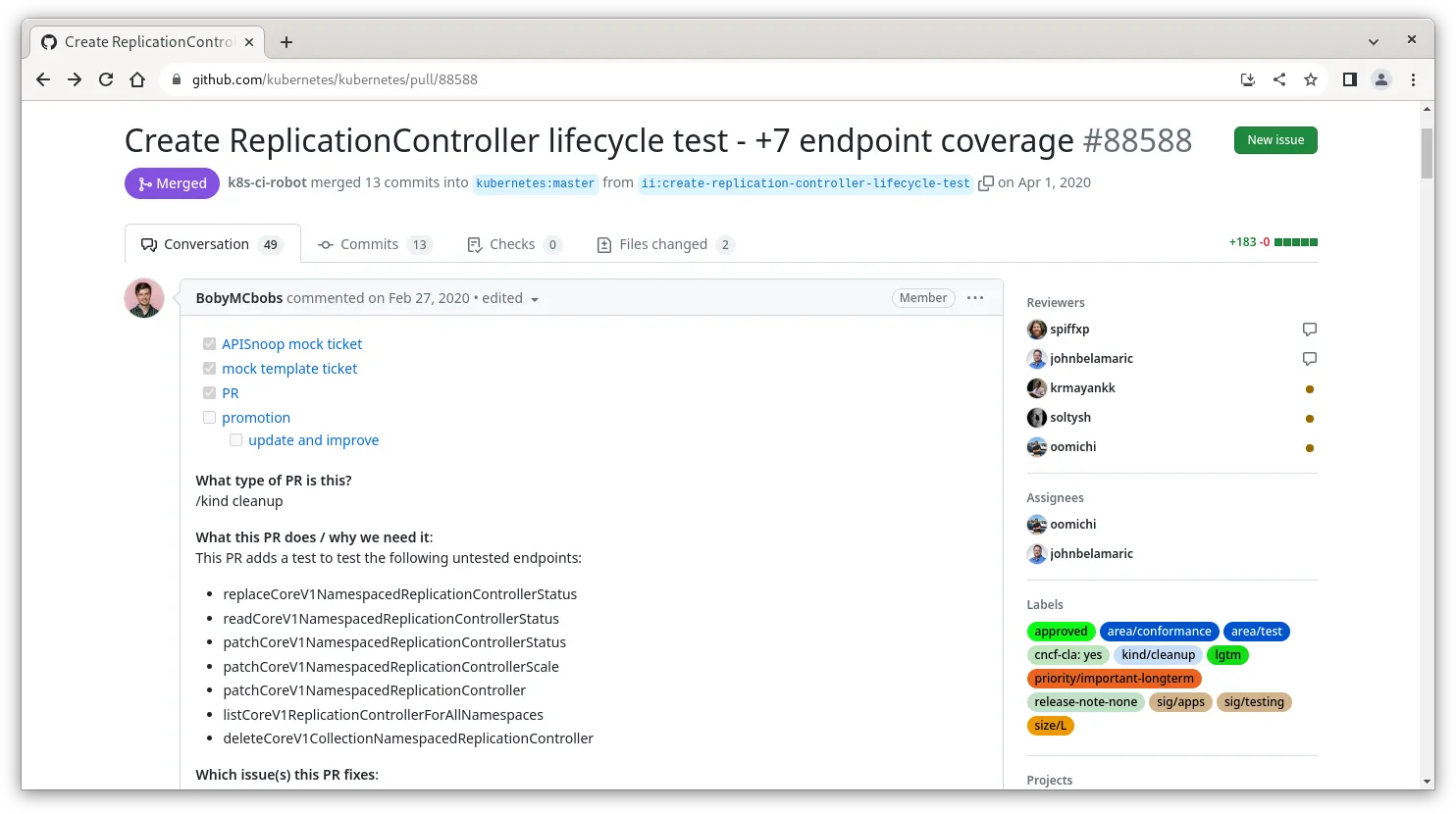
feedback on the new PR
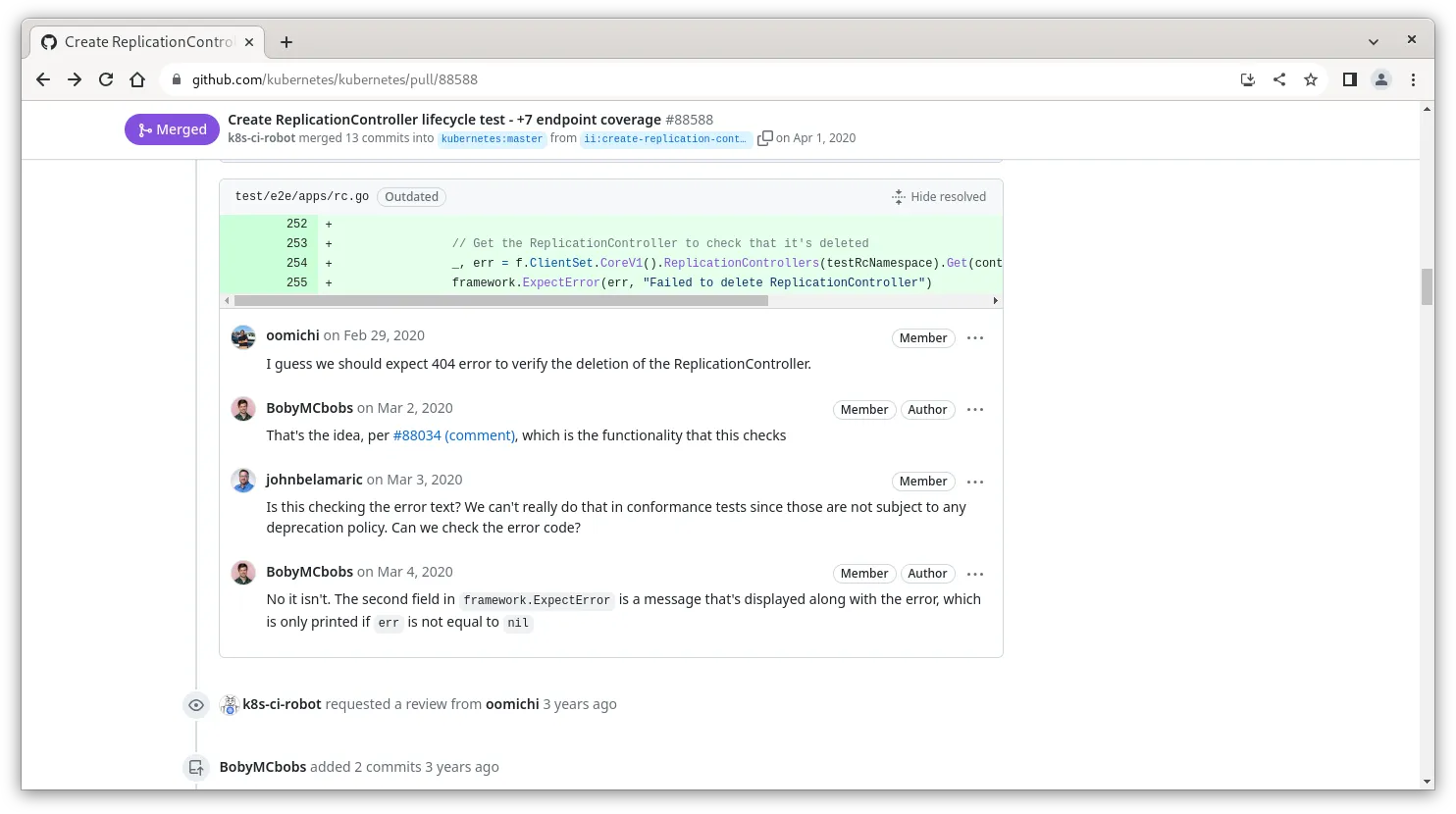
Soaking
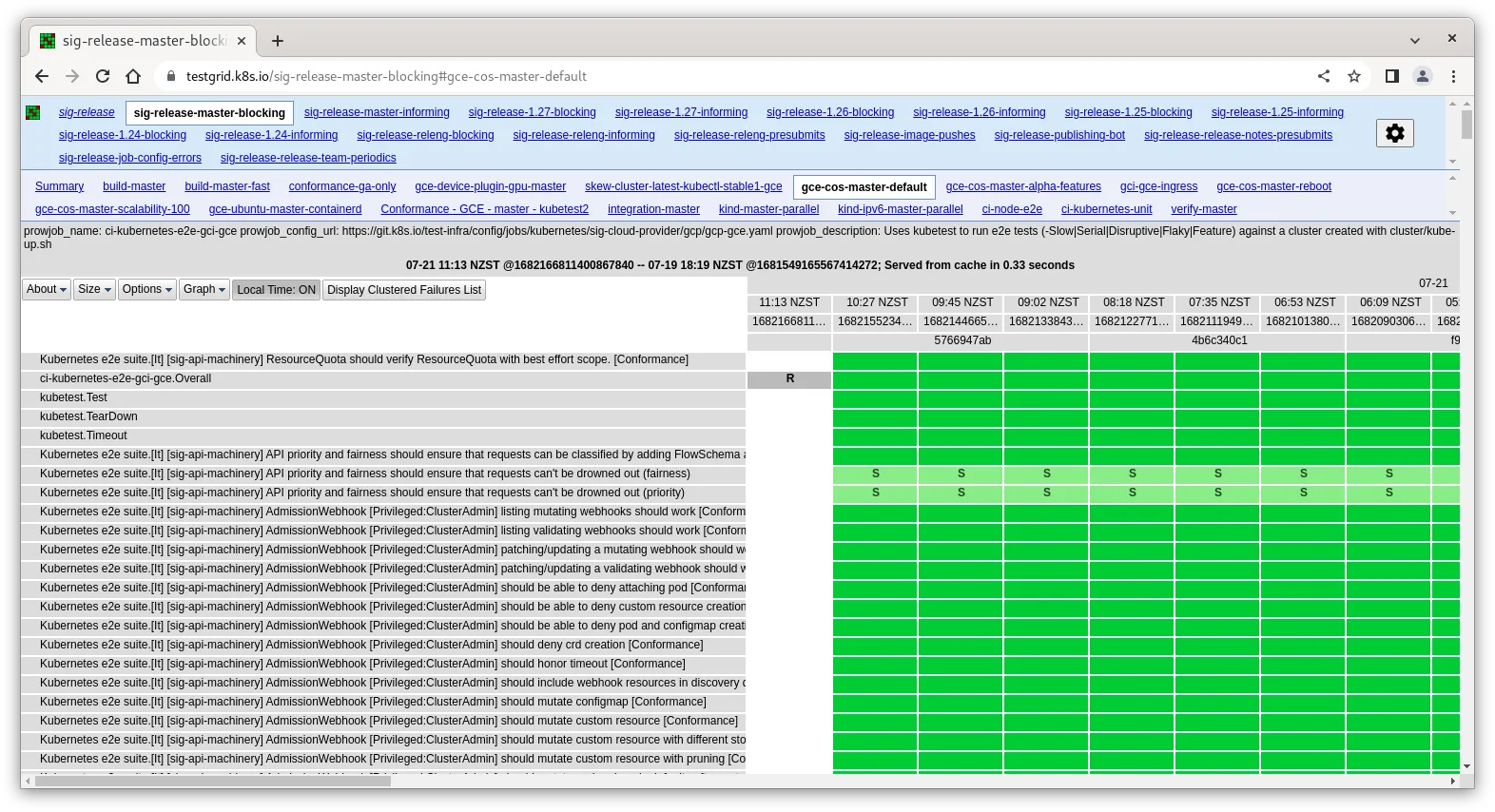
View the job logs
Kubernetes-native CI system built around and for the way that the community works.
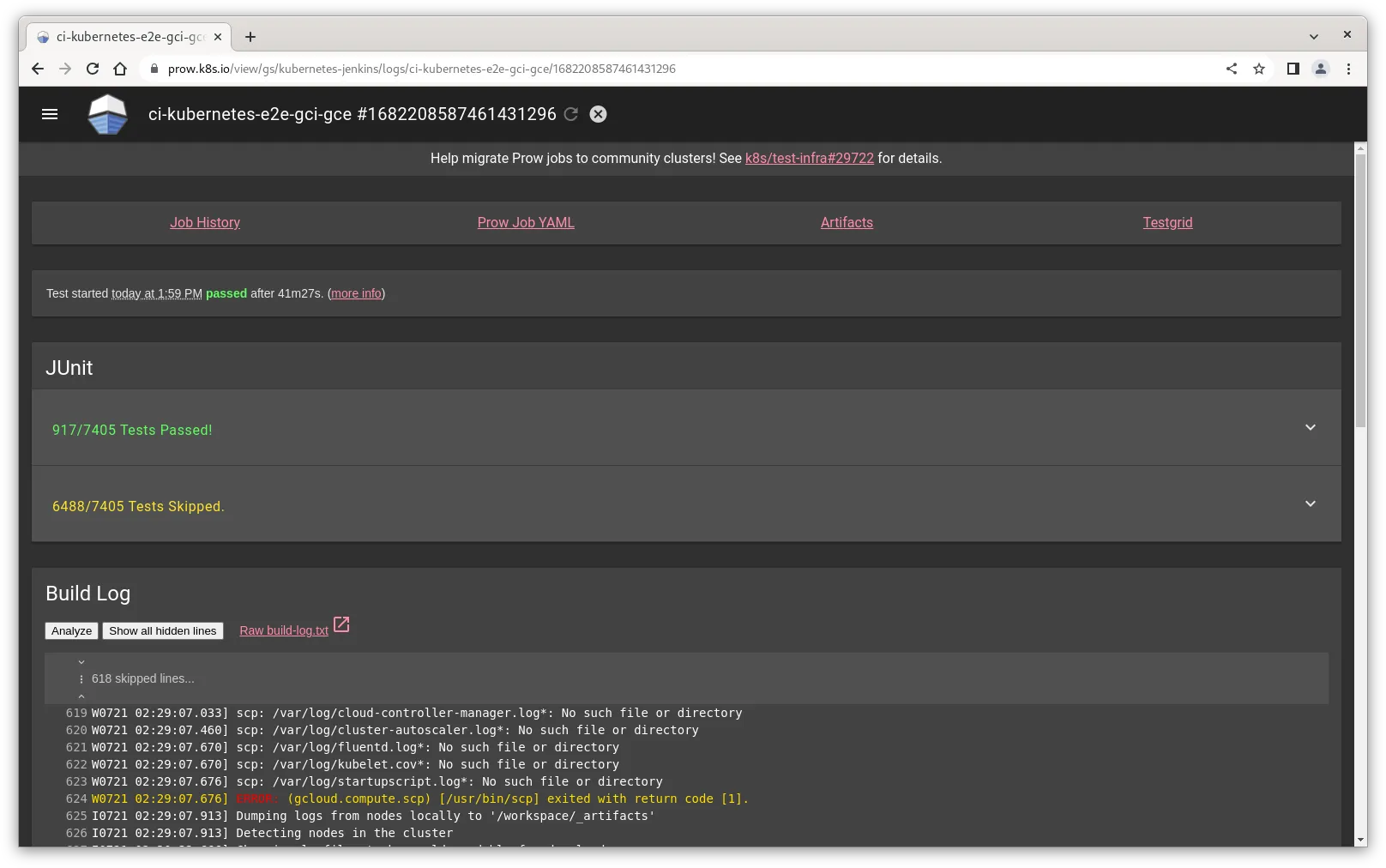
Test writing and the Ginkgo e2e test framework
the entrypoint changes
...
ginkgo.It("resource should do the thing the resource does", func(ctx context.Context) {
list, err := clientset.SomeResource(f.Namespace.Name).List(ctx, resourcev1.ListOptions{})
gomega.Expect(err).To(BeNil(), "failure to list resource")
gomega.Expect(len(list.Items)).ToNot(gomega.Equal(0), "no items found")
})
...
Test writing and the Ginkgo e2e test framework
the entrypoint changes
...
framework.ConformanceIt("resource should do the thing the resource does", func(ctx context.Context) {
list, err := clientset.SomeResource(f.Namespace.Name).List(ctx, resourcev1.ListOptions{})
gomega.Expect(err).To(BeNil(), "failure to list resource")
gomega.Expect(len(list.Items)).ToNot(gomega.Equal(0), "no items found")
})
...
conformance today
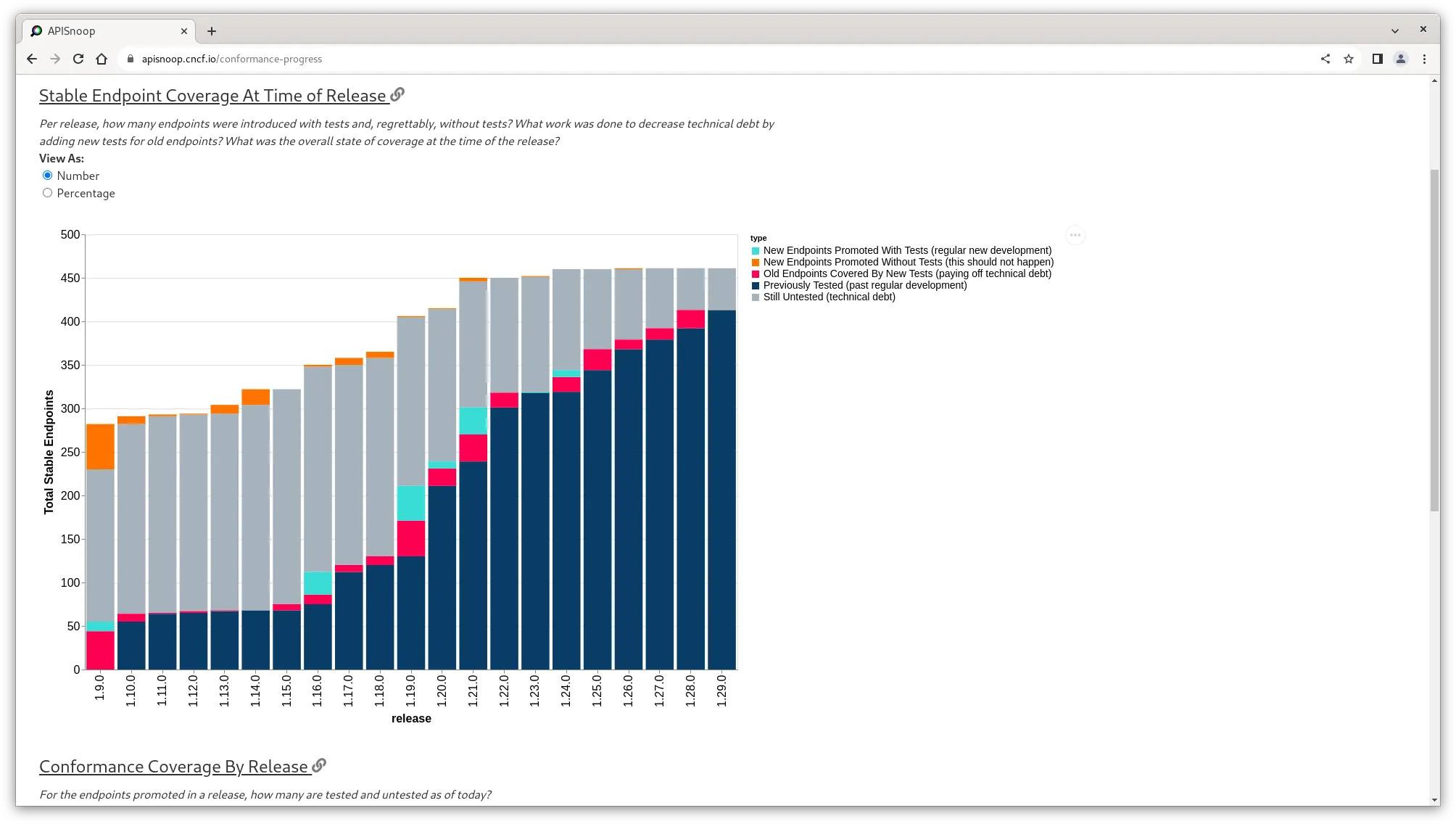
automations

Contributing to Kubernetes
Onboarding
- attend a meeting in a SIG (relevant to you or not)
- start positively interacting and contributing
- be open to learning!
becoming an org member

https://github.com/kubernetes/org/issues/1238
opening a ticket to kubernetes/org
code of conduct
it mostly comes down to
✨ be kind ✨
community values
- distribution is better than centralisation
- community over product or companies
- automation over process
- inclusive is better than exclusive
- evolution is better than stagnation
SIGs and WGs
find your fit!
Kubernetes currently has ~23 special interest groups and 8 working groups, such as
- sig-architecture
- sig-contribex (contributor experience)
- sig-docs
- sig-k8s-infra (project infrastructure)
- sig-security
and many many more!
see: https://www.kubernetes.dev/community/community-groups, https://github.com/kubernetes/community
Meetings
each SIG has meetings on their different areas each week or so. meetings are structured around a document, often including fields like
- who’s attending
- reoccuring topics
- open discussion
Why you might like to contribute
- be apart of a community
- what is the most important thing? the people! the people! the people!
- be apart of an industry standard
- add something that’s important to your focus/company into the project
- welcoming and helpful folks
- fun and cool solutions to work powerfully together
- you’re invited!
k8s.dev
join on Slack via https://slack.k8s.io
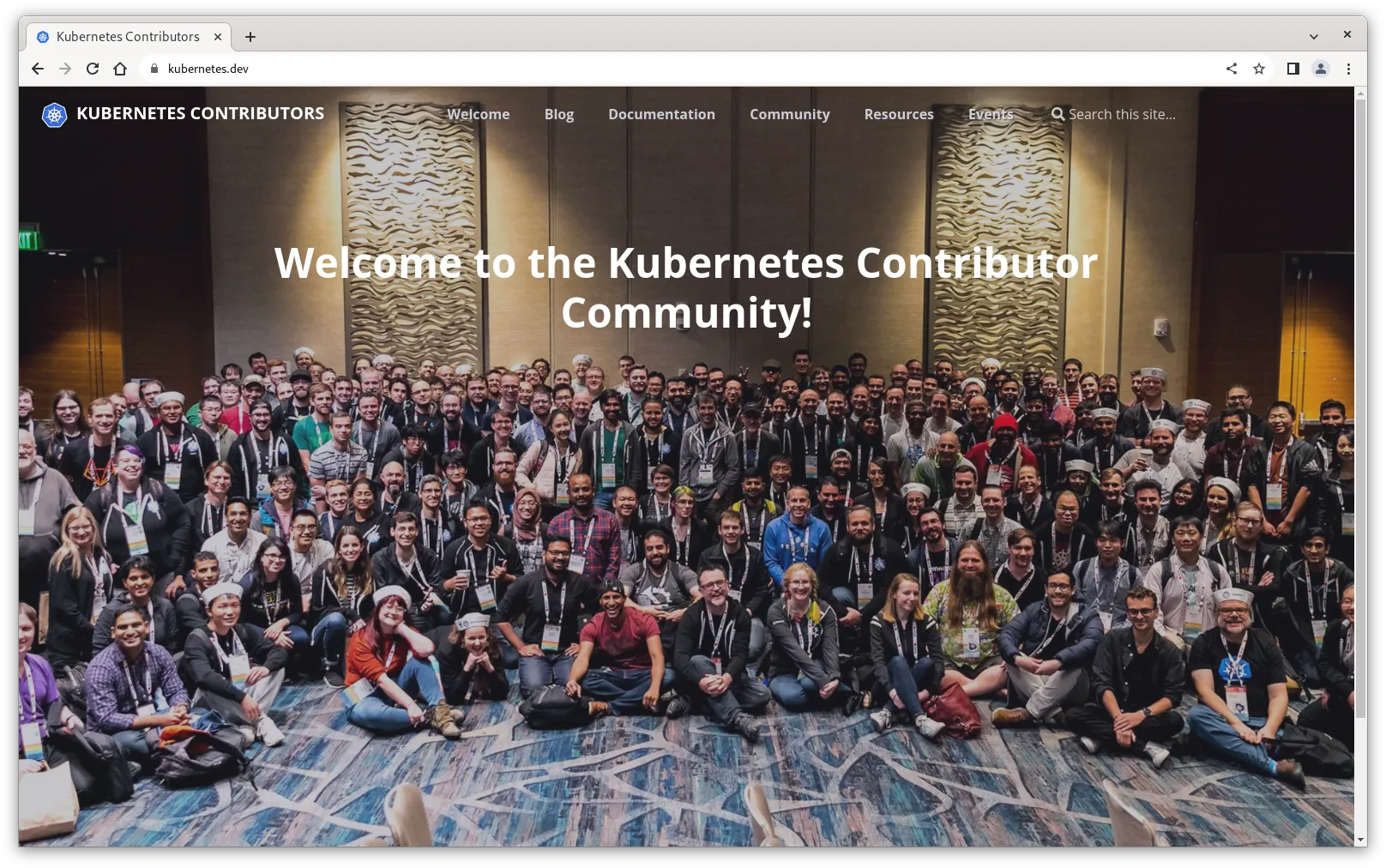
Questions

(end)